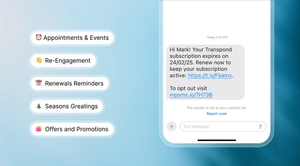If you’re running a small business in 2025, you have two options: stick to outdated methods and risk falling behind, or take action and make the most of what you can achieve.
The journey can feel overwhelming when you’re going at it alone, which is why we’ve created this guide.
We’ll introduce over 25 tools that can transform everything from sales management to team organization. You'll find options here that fit your company and help you achieve your goals, whether you're starting out or just looking to refresh your toolkit.
What are small business tools?
Small business tools are software solutions that can help you grow your business.
They support you with tasks such as:
- managing customers and communications
- keeping track of finances
- organizing projects,
- handling payroll
- taking care of your social media presence.
and anything else that lands under ‘small business operations.’
With small business tools, you can focus on getting more customers and increasing their lifetime value.
Top tools for small business owners
YouGov survey shows that some of the critical priorities for small businesses in 2024 include:
- Business expansion
- increasing marketing spend
- improving customer suppor,
- and implementing AI tools like Arc Agents.
Here’s a list of tools to help you overcome these challenges and succeed with your business:
Customer relations and business management software
Happy customers are your best salespeople. Do you know how to manage customer interactions and sales properly? The right tools make the difference.

#1 - CRM (Customer Relationship Management)
CRM tools are designed to help businesses manage their relationships with customers.
Small businesses using CRM software often see many benefits:
- 83% report a solid return on investment
- 61% say it improves customer retention
- and 86% find it helps them achieve their business goals.
Despite these advantages, only 25% of small businesses have adopted a CRM tool—leaving many missing out on an opportunity to strengthen customer relationships and streamline operations.
Example: Capsule CRM
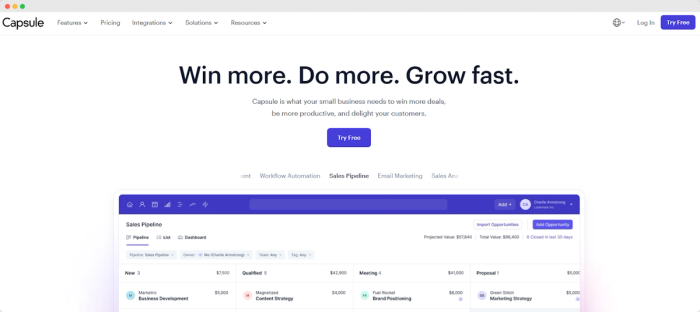
Capsule CRM is a user-friendly solution tailored to small businesses. It helps you track customer interactions, manage sales pipelines, and store essential information in one central location.
With Capsule, you can easily follow up with leads, organize contacts, and gain insights into your customer base – all without overwhelming complexity. As your business grows, Capsule empowers you to build lasting customer relationships and stay organized.
Some of our features include:
- Contact management
- Sales pipeline management
- Workflow automation
- Email and marketing solutions
- Sales analytics
- Project Management
- AI content assistant
Check this out: top benefits of CRM for small businesses
#2 - Email marketing tools
Despite email marketing being one of the most cost-effective methods to improve ROI, about 25% of small businesses still don’t use it. This is a missed opportunity, as email marketing allows you to nurture customer relationships, increase revenue through upsells, and even break into new markets with well-crafted cold emails. Isn't it time you took advantage of it?
Example: Transpond
Transpond is an excellent example of an email marketing tool built for small businesses. Its drag-and-drop editor lets you create professional-looking emails in minutes, even if you're not a designer.
With its AI Content Assistant, writing engaging emails becomes faster and easier. Plus, automation features allow you to set up transactional workflows and follow-up sequences – ensuring no lead is left behind.
Using advanced analytics, you can monitor the performance of your emails. It also integrates smoothly with apps like Capsule CRM and Stripe.
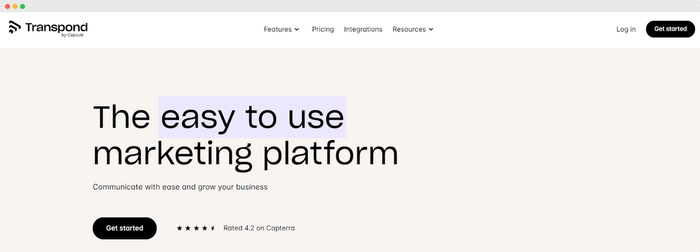
Check these out:
best SMB email campaign examples,
email templates for small businesses
#3 - Sales automation software
Over 30% of sales processes can be automated, saving small businesses time and effort. Sales automation software handles processes like sending follow-up emails, managing leads, and tracking sales data.
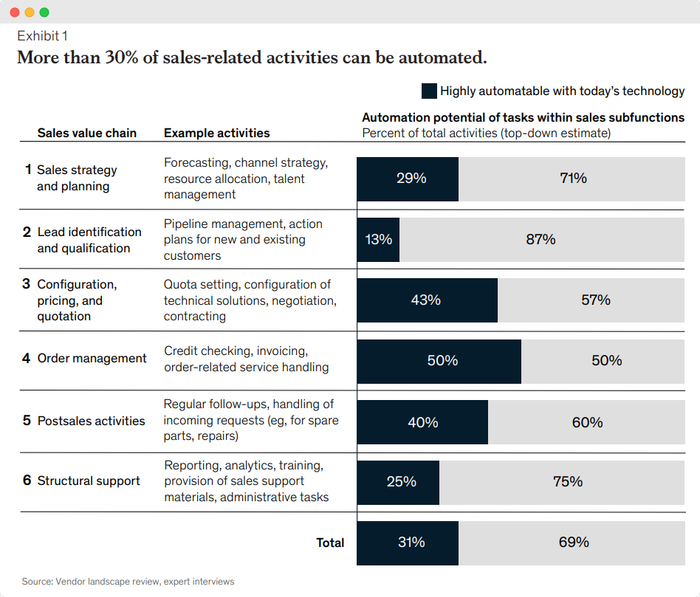
Instead of handling repetitive tasks yourself, you can automate them and build better relationships.
For small businesses, automating key parts of the sales process reduces manual work and helps scale efforts without expanding staff.
Examples: Gong.io, Outreach, Woodpecker, TownSquare Interactive
#4 Customer support & live chat tools
Customer experience directly impacts buying decisions. Offering excellent service keeps customers happy and loyal. Customer support tools allow small businesses to manage customer inquiries, track support tickets, and respond quickly – all while keeping costs low. With live chat features, you can provide immediate answers, resolve issues faster, and increase customer satisfaction.
Examples: Intercom, LiveChat, HelpScout
Marketing tools
Spending too much time managing marketing activities manually? Let tools handle the time-consuming tasks. If you’re guilty of doing it all yourself, don’t worry – these tools below can make it easier for you.

#5 - Social media management tools
Social media tasks can quickly consume valuable hours, especially when done manually. For small businesses, this can drain resources and shift focus away from growth. Social media tasks like content management, analytics, and research can eat up as much as 65% of the time spent on social media management.
Social media management tools offer a solution by automating tasks like content creation, scheduling, and performance tracking. These platforms go beyond just saving time. Tools help you stay organized, manage multiple accounts, and analyze engagement from a single dashboard.
Examples: Hootsuite, Buffer, SocialBee, Sprout Social, Later, Kontentino, SocialPilot, Walls.io
Check this out: small business social media marketing guide
#6 - Visual content creation & design tools
Consistent, well-structured content can boost your marketing success by up to 45%. For small businesses, this is a huge opportunity to generate more leads and sales without hiring a full design team.
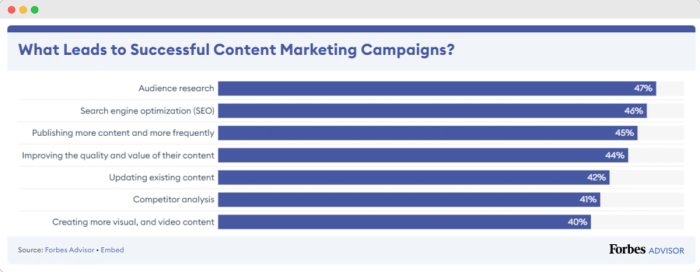
Visual content creation tools let you create eye-catching images, videos, and posts with just a few clicks. These platforms are user-friendly, often requiring no prior design experience – making them perfect for small businesses looking to produce professional content affordably.
Examples: Canva, Midjourney Adobe Spark, Crello, Figma, Visme, simpleshow
Check this out: content marketing ideas for small businesses
#7 - SEO tools
Over 50% of small businesses either don’t use SEO or aren’t sure if it’s part of their marketing strategy, which means many miss out on valuable traffic.
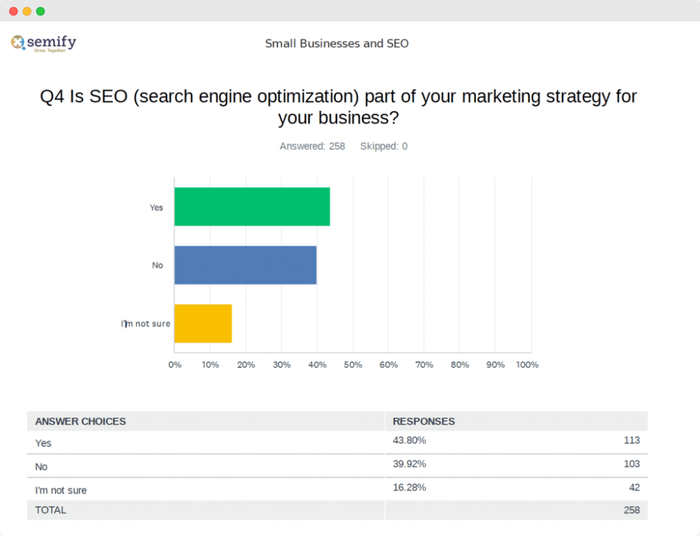
SEO tools can change that by improving your website’s visibility and helping you attract the right audience. These platforms provide data-driven insights, showing where your website can perform better and which keywords to target.
With SEO tools, you can improve your website’s visibility so potential clients can easily find your business!
Examples: Moz, Ahrefs, SEMrush, SEObility Free keywords research tool, Ubersuggest, Yoast SEO, Google Analytics, Content Marketing AI
Check these out: how to write Google Ads, local SEO checklist
#8 - Influencer marketing platforms
Influencer marketing is powerful for small businesses, with 97% of marketers saying it helps them break into hard-to-reach niche markets.
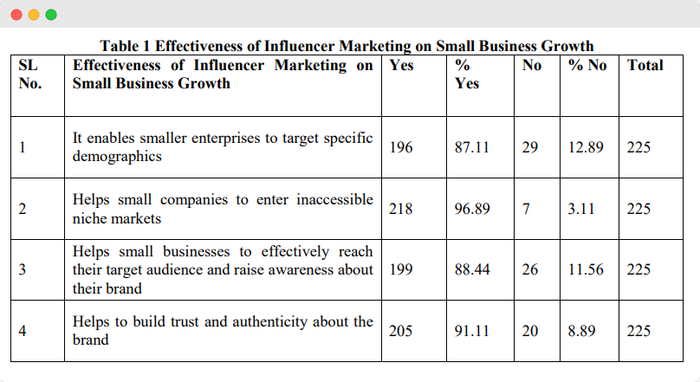
Starting with influencer marketing is a tedious and time-consuming process if done manually, but there are tools to help you.
Influencer marketing platforms simplify the process by helping you find, vet, and manage influencers who fit your brand. These tools allow you to reach your target audience and get your products in front of potential customers quickly. What used to be a time-consuming manual process is now optimized. Small businesses can execute influencer campaigns effectively and scale up as needed.
Examples: BuzzSumo, AspireIQ, Upfluence, Traackr, NeoReach, Influencer Hero
Finance and accounting software
Finance tools keep your books in check and help you avoid legal trouble.

#9 - Accounting software
Accounting software is the backbone of your financial operations. It tracks income, expenses, and taxes, giving you a complete picture of your financial health. You can handle bookkeeping, generate reports, and make the upcoming tax season less stressful.
The small business accounting software market was worth over $4 billion in 2023, and it’s expected to hit almost $6.6 billion by 2032. This shows that increasingly more businesses see the value in keeping their finances properly managed.
Examples: QuickBooks, Xero, Sage, Wave
#10 - Invoicing tools
Invoicing is the area of business where many small companies struggle. A study by QuickBooks found that many firms have overdue invoices that have been sitting for more than 30 days. Why? These companies have virtually no follow-up process for their invoices.
That’s where invoicing tools come in – helping you not only create invoices but also manage them. These tools automate sending invoices and reminders so you can stop worrying about who owes you what. You send an invoice once, set it, and forget it.
Examples: Invoice2go, Harvest, Bill.com
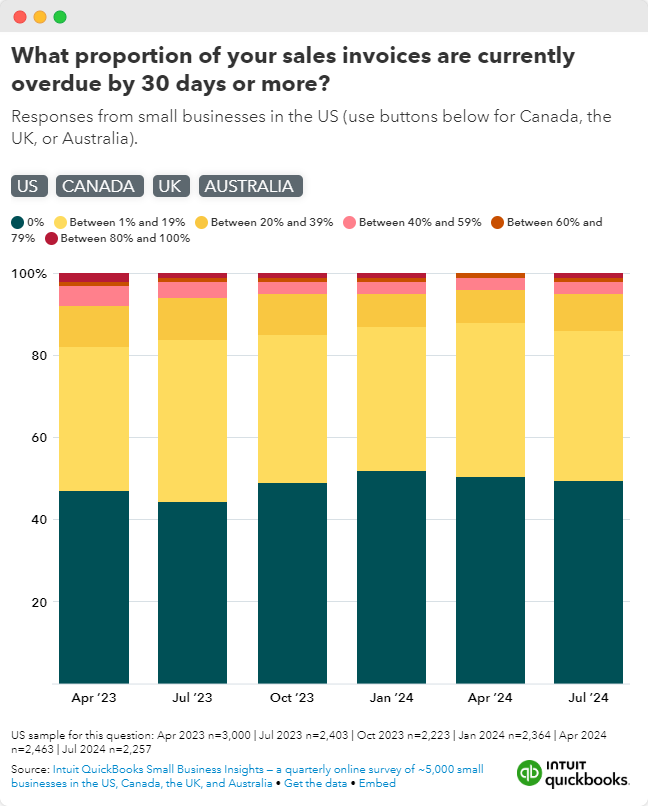
#11 - Expense tracking
Every small business owner knows how fast expenses pile up. Advanced expense tracking tools help you keep an eye on day-to-day spending.
They’re different from accounting software, which focuses on the big picture. With expense trackers, you see where every dollar goes and can quickly spot trends, adjust budgets, and avoid unnecessary costs.
Examples: Expensify, Rydoo, Xpenditure, Abacus
Check this out: how to create, manage, and stick to a small business budget
#12 - Payment processing
As cash becomes a thing of the past, businesses need to adapt. 43% of customers say they carry less physical money than a year ago. This is why you need to provide a wide range of payment options. However, integrating and managing these systems can become complicated without the right tools.
Payment processing platforms allow you to handle multiple payment types – credit cards, mobile wallets, and even alternative methods like Buy Now, Pay Later – within a single interface. Beyond just processing payments, though, they provide features like fraud protection, detailed reporting, or automated reconciliation, which can save you hours in manual bookkeeping.
Examples: PayPal, Stripe, Square, Authorize.net, Braintree
Project management & collaboration tools
Time is money, so why waste it? The tools below will help small businesses keep projects on track.

#13 - Project management tools
Meeting deadlines and hitting business goals hinges on efficient project management. A study by Binfire showed that 59% of people using project management software say it helps their team meet deadlines. Additionally, 50% think they can achieve their business goals.
Project management tools centralize project timelines, resource allocation, and milestone tracking. Small businesses need a platform like this to keep track of every aspect of their projects in real time, so they don't get stuck in bottlenecks.
Examples: Capsule, Asana, Monday.com, Basecamp, Wrike, Smartsheet
#14 - Task management software
Managers often lose 12.4% of their time each week (five hours) just assigning or reorganizing tasks. For small businesses, that time is precious.
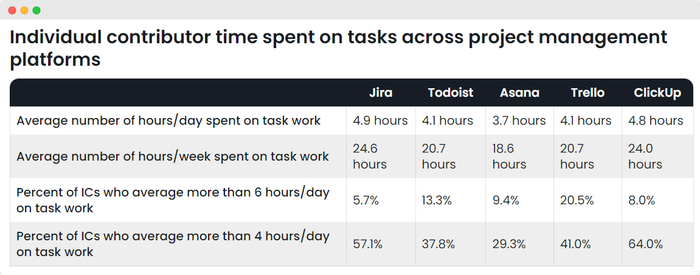
Task management software organizes and prioritizes individual tasks rather than entire projects. These tools make it easy to delegate day-to-day responsibilities and track task progress for smaller, more routine activities.
Unlike project management platforms, which handle larger goals and timelines, task management software is more tactical – helping teams focus on what needs to be done now without getting bogged down by broader project details.
Examples: Capsule, Todoist, Jira, ClickUp, Trello
#15 - Collaboration platforms
Collaboration is a top priority for 58% of SMBs, especially with hybrid and remote work becoming more common.
Collaboration platforms provide a shared space for teams to communicate, exchange files, and work together in real time. They differ from project and task management tools by focusing primarily on team interaction rather than task tracking.
Examples: Slack, Microsoft Teams, AppsGeyser No-code App Builder, Flock, ClickUp, Retable, ProofHub, MailerCloud, Paldock
#16 - Time tracking solutions
The US economy loses around 50 million hours of productivity daily due to untracked work activities – an issue small businesses can’t afford.
Time tracking solutions monitor the time spent on tasks, projects, and overall work activities. This helps businesses identify unproductive patterns and improve resource allocation. Unlike task or project management tools, which focus on completing work, automated time tracking software focuses on how long that work takes.
Examples: Toggl, Clockify, TrackingTime, Harvest, Unrubble, RescueTime
#17 - Document storing tools
Document sharing tools provide a secure, centralized hub for organizing, storing, and accessing important documents. For small businesses, these tools reduce the time spent searching for files.
Beyond simple file storage, these platforms offer advanced features like real-time collaboration, version control, and secure sharing links or scraping data, all of which ensure that everyone has access to the right information when they need it.
Examples: Google Workspace, Microsoft OneDrive, Quip, Dropbox Paper
#18 - Video conferencing platforms
Remote work demands a reliable video conferencing platform. These tools let your team connect face-to-face, share screens, and collaborate in real time.
Look for a solution that integrates with your project management or calendar apps, offers features like meeting recording and chat, and keeps your data secure with encryption. It should be easy to use and fit within your small business budget!
Examples: Zoom, Microsoft Teams, Google Meet, GoToMeeting, Webex, Loom
For more flexibility, try Loom for asynchronous video. It lets you record and share videos that teammates can watch on their own time, perfect for teams in different time zones or when live meetings aren’t needed.
E-commerce & online sales solutions
Do you need more customers at checkout? With dedicated e-commerce tools, you'll create a winning shopping experience. The more you optimize the buying process, the better your chances of attracting and converting customers.

#19 - E-commerce platforms
With 65% of small businesses expecting their e-commerce sales to grow in 2024, it’s clear that online retail offers major potential. But to capitalize on this, you need a solid e-commerce platform. E-commerce platforms provide everything you need to build, run, and scale your store.
For small e-commerce businesses, the right platform can mean the difference between steady growth and stagnation. Dedicated platforms offer easy integrations with payment processors, marketing tools, and inventory management – so you run your online business without disruption.
Examples: Shopify, BigCommerce, WooCommerce, Magento, Squarespace
#20 - Shopping cart solutions
On average, 70.19% of online shoppers abandon their carts, making this one of the biggest obstacles to increasing sales
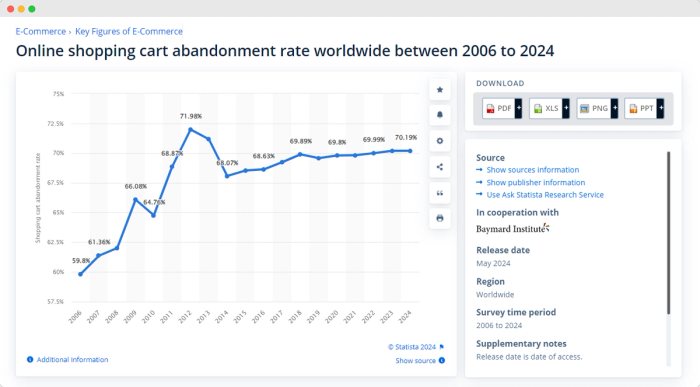
Shopping cart solutions can dramatically reduce abandonment rates by offering features like:
- automated cart recovery emails
- one-click checkouts
- reminder notifications
- and personalized promotions.
For e-commerce businesses, a user-friendly checkout is critical to keeping customers engaged and driving more sales. With these tools, you can provide a frictionless payment experience while recovering lost revenue.
Examples: SamCart, ThriveCart, Ecwid, PayKickstart, OpenCart
#21 - Inventory management software
43% of small businesses don't keep track of their inventory. It's understandable if a company has no inventory to manage, but this only applies to about 25% of small business owners.
If you’re not in that group, then consider using an inventory management solution. This tool is excellent for overseeing stock, orders, and shipments, and it's a must-have for businesses that handle physical products.
Examples: TradeGecko, Cin7, Unleashed, Ordoro, MyRouteOnline, Fishbowl
#22 - Point Of Sale systems
With the POS software market projected to hit $29.9 billion by 2032, now is the time to invest in a reliable system. POS systems go beyond handling transactions; they also offer features for tracking inventory, generating sales reports, and managing customer relationships.
For e-commerce businesses with physical storefronts or pop-up shops, systems like liquor store POS bridge the gap between online and offline sales – helping you track purchases and customer data across all channels.
Examples: Square POS, Clover, Lightspeed, Vend, Toast POS
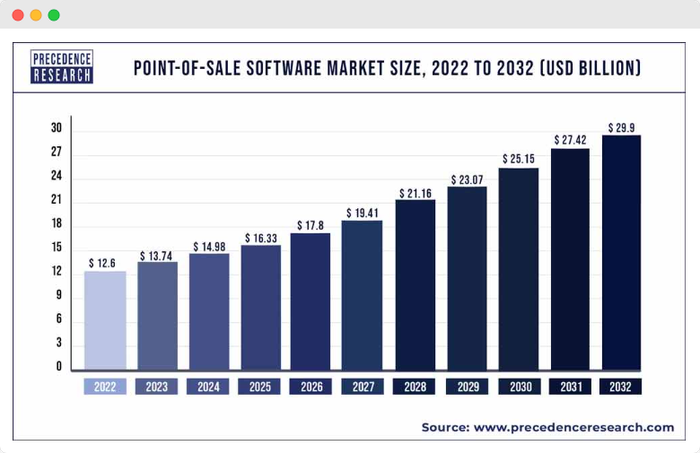
Human resources platforms
It might not seem essential for every small business, but once you start hiring, you’ll realize how crucial it is. Managing a growing team comes with its own schallenges, and having the right tools in place can save you time and prevent headaches down the road.
#23 - HR management tools
Labor accounts for 70% of business expenses - the most considerable cost. One way to reduce this is by using HR software. Approximately 3.2 million small and medium-sized businesses use cloud-based HR tools to manage their tasks.
This tool is useful if you want to follow labor laws while staying productive.
Examples: BambooHR, HireTruffle, Workday, Namely, ADP Workforce Now
#24 - Payroll software
Half of small businesses outsource payroll, which can get expensive, especially as you grow. Payroll software lets you handle this in-house, saving costs and improving control. You can automate salary calculations, tax deductions, and compliance with state and federal payroll regulations.
Examples: Gusto, Paychex, OnPay, Rippling, QuickBooks Payroll
Check this out: understanding small business payroll
#25 - Recruitment platforms
Finding the right talent can be tough for small businesses – 86% of hiring managers say it’s a challenge. Recruitment platforms simplify things by allowing you to post job listings, track applications, and connect with candidates faster.

These tools offer applicant tracking and advanced filtering, so you spend less time sifting through resumes and more time interviewing qualified candidates.
Examples: Recruiterflow, LinkedIn Talent Solutions, BreezyHR, Greenhouse, Jobvite, Recruitee, Qureos
#26 - Employee scheduling solutions
In 2022, the global Employee Scheduling Software market was valued at USD 412.36 million. It's expected to grow at a CAGR of 14.74%, reaching USD 940.72 million by 2028. The popularity of these solutions is on the rise.
Managing shifts and hours can become challenging as your team grows. Employee scheduling solutions simplify shift planning by automating the scheduling process, tracking hours, and even notifying staff of changes. These platforms allow small businesses to reduce scheduling conflicts and improve employee satisfaction by providing real-time updates on shifts and schedules.
Examples: Deputy, When I Work, Homebase, Shiftboard, Sling
#27 – Sales proposal and communication software
A well-crafted proposal can make or break a deal, but drafting one manually takes time. Sales proposal software might sound complex, but it’s actually drag-and-drop easy – no design skills needed. These tools provide customizable templates, e-signature integrations, and tracking features so you can see when prospects open your document and follow up at the right time. Within minutes, you can create a professional, data-driven proposal.
Examples: Proposify, PandaDoc, Qwilr, UpFirst
If even these tools feel overwhelming, start simple! Google Slides is a great way to create your first proposal or pitch deck. Sites like SlidesCarnival.com offer free templates to get you going without the hassle.
#28 User onboarding & customer education tools
First impressions matter – especially when bringing in new users. However, small businesses often focus on getting new clients and forget to properly onboard the ones they just acquired. That’s where onboarding tools help – offering walkthroughs, interactive product demos, self-serve support, and automated tutorials to get users up to speed without extra work.
Examples: Userpilot, WalkMe, Product Fruits, Guideflow.
If you’re just starting out, even a simple email sequence or FAQ page can go a long way in guiding new customers. Tools like Loom let you record quick explainer videos to make the process feel more personal.
Examples: Userpilot, WalkMe, Product Fruits.
#29 Appointment scheduling software
If appointments are a big part of your business, automated scheduling saves you from endless back-and-forth emails. These tools let customers book based on your availability, send reminders, and sync with your calendar—perfect for service providers, consultants, and sales teams.
Examples: Calendly, SimplyBook.me, Acuity Scheduling.
Before you start, remember one rule: Make it easy for your customers. Ensure your booking link is easy to find – add it to your website, email signature, or even social media bios. The fewer steps they have to take, the more likely they are to book.
Wrapping up
Choosing the right software can ease your workload and support business growth. While we might not go as far as Thomas Carlyle’s quote, “Man is a tool-using animal… Without tools, he is nothing, with tools he is all,” it’s clear that having the right tools can make a big difference.
We’ve highlighted the solutions worth your attention. Now, it’s your turn to take action.
Start by following our list, begin transforming how your small business operates today, and make Capsule CRM a part of that change!
If you're ready to simplify your workflow and grow smarter, Capsule CRM has you covered.
What does it bring to the table to help you run your business?
- Contact hub: Access every client detail instantly – no more scrambling for info.
- Sales flow: See your deals in action and close faster with a clear, visual pipeline.
- Task reminders: Never miss a beat with easy, timely prompts to keep you on track.
- Custom insights: Spot trends and make data-driven decisions with reports that work for you.
- Smart integrations: Sync with G Suite, Mailchimp, Xero, and more – right from Capsule.
Here’s just a taste – get started with a free account and see how Capsule CRM can sharpen your workflow!




